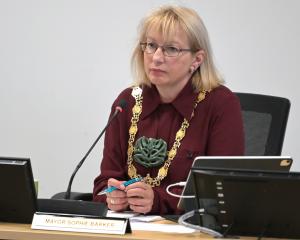

Samoans are also the most populous of New Zealand’s Pacific Island communities. About 55,000 New Zealand Samoans were born in their homeland. The average age is 22.8 years compared to the country at 37.4.
New Zealand sailed into Samoa to take charge from Germany at the start of World War 1. It was hardly a glorious reign. The Spanish flu entered the islands in 1918 when a ship from Auckland was not quarantined. The subsequent response of officials was bungled. It is estimated a massive 22% of the population died from the flu.
Then, on Black Saturday, in 1929, police shot into a crowd on the waterfront of the capital, Apia, leaving at least eight people dead. In 2002, Prime Minister Helen Clark apologised on New Zealand’s behalf.
Samoa became independent in 1962, and emigration took off, often to fill the need for workers in New Zealand’s factories. But, after the sudden economic downturn in the early 1970s, the infamous dawn raids in the search for overstayers took place. The formal apology for this only took place last year.

Some of the highest-profile Samoans have been in sport; for example, Sir Bryan Williams, Sir Michael Jones, Sonny Bill Williams and All Black captain Tana Umaga in rugby, Ross Taylor in cricket, Silver Ferns and Southern Sting captain Bernice Mene and Maria Folau (Tutaia) in netball, David Tua and Joseph Parker in boxing.
Samoan New Zealanders have been prominent as well across the arts, entertainment, politics, and other areas of New Zealand life.
Among them are several MPs, novelist Albert Wendt, actor, television presenter and writer Oscar Knightley and actor Robbie Joseph Magasiva. Samoan Efeso Collins could well be Auckland’s next mayor, having been endorsed by both Labour and the Greens.
There have been strong contingents of Samoan students at the University of Otago for years, and Dunedin is proud that opera singer Jonathan Lemalu, the son of Samoan immigrants, is from the city.
City councillor Marie Laufiso gives credit to her heritage and the Samoan values of “hard work/tautua (service), fa’aaloalo (deep respect) and alofa for parents, elders and ’aiga (family)”.
There are concerns, nonetheless, for the future of the Samoan language in New Zealand. Language can be an important part of identity and culture, a foundation. Growing up fully bilingual in the early years can also stimulate intellectual capacities.
But despite the most helpful Samoan language-rich surroundings in church settings opportunities have been missed. It is said some migrants, understandably and with the best of intentions, saw speaking English as an avenue for educational success for their children in a new land. In hindsight, a more thorough grounding in Samoan at home would have been advantageous. English would have developed anyway.
Meanwhile, official and education policy was slow to recognise the benefits of “mother tongues”, as was society generally.
Samoan language preschools, a’oga amata, will be important and are in place in most larger centres. They need to be further encouraged.
The large number of New Zealanders identifying with their Samoan heritage provides the critical mass missing for some smaller Pasifika ethnicities. Samoan language should have a future in this country. It will not be easy. Crucial will be the determination and hard work of Samoans themselves, whatever the official policies.
No doubt, Samoan inner pride — an integral part of the culture —will play a part. Samoans can be proud, too, of their many contributions to life in New Zealand.












